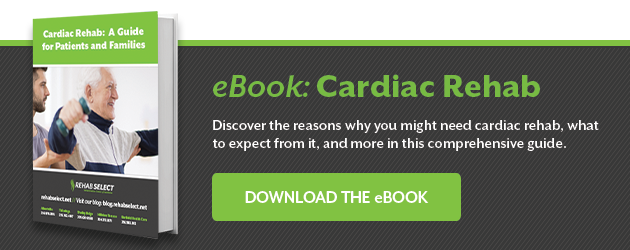
Heart disease is one of the leading causes of death in the United States, and millions of Americans suffer from one form or another of this potentially deadly ailment. There are many conditions that can adversely affect someone's heart, ranging from genetic defects some are born with to lifestyle-generated cardiovascular issues, which generally result in narrowed blood vessels leading to chest pain and increased risk of such events as strokes.
Recovery from heart attacks and managing heart disease can entail a wide spectrum of interventions that include such things as improving fitness, controlling stress, quitting smoking, making dietary changes, as well as the use of several therapeutic medications.
Preventing Heart Disease
Most health experts agree the easiest way to treat non-genetic heart disease is to not get it in the first place. Recognizing this has led health professionals across the country to begin putting a lot of energy into helping their patients acquire the types of lifestyle habits that can give them the best opportunity to avoid encountering preventable heart problems.
These lifestyle changes have been demonstrated to be one of the most effective ways of coping with heart disease and managing it before it advances too far and requires more serious medical interventions. The types of measures encouraged by health professionals are both effective and simple. They include:
-
Regular Exercise
– This aids the heart by enhancing heart function and strength, as well as the added benefit of reducing a patient's stress level and weight – two known risk factors leading to heart disease. In fact, the Mayo Clinic reports that you should aim for “150 minutes a week of moderate aerobic exercise, such as walking at a brisk pace.” -
Improved Diet
– High cholesterol and saturated fat intake have been clinically shown to lead to heart disease, so helping patients learn how to eat heart-healthy foods is a key element in preventing the onset of cardio problems. The American Heart Association states that “Saturated fats can cause problems with your cholesterol levels, which can increase your risk of heart disease. Replacing foods that are high in saturated fat with healthier options can lower the risk of heart disease.” -
Regular Check-Ups
– A medical professional should conduct tests and perform routine monitoring to detect cardio problems early. An early diagnosis gives doctors more time to find a treatment that can keep your symptoms in check and prevent other health issues.
Of course, prevention is just one part of the battle in fighting heart disease. Once a problem develops, you must consider other approaches to best manage heart disease.
Mayo Clinic reports that you should aim for
150 minutes a week
of moderate aerobic exercise, such as walking at a brisk pace.
Coping with Heart Disease
Once heart problems have advanced to a certain point, the active and ongoing intervention of medical professionals is usually needed to treat the condition and help patients return to a healthy state. This typically involves the use of medications in combination with a variety of other techniques aimed at a holistic approach to reversing the forward progress of any heart condition.
For those who have been diagnosed with advanced stages of heart disease and are living with heart disease, medical professionals can design a structured treatment program that attacks the underlying condition from a number of different angles. Cardiac rehabilitation is a supervised program that includes physical activity, education about healthy living, and counseling to find ways to relieve stress and improve mental health. This approach is usually customized to an individual's specific situation, and can involve:
-
Physical Therapy
– frequently a formal program geared toward rebuilding heart strength -
Respiratory Therapy
– implementing various methods of increasing the oxygen supply to the heart -
Cardiac Rehabilitation
– an inpatient regime employing a systematic program of supervised techniques aimed at managing heart disease in a clinical atmosphere to maximize the overall effectiveness of each individual therapy
The advantage of a cardiac rehab program for managing heart disease is that with the expert guidance of trained therapeutic professionals, the cumulative impact of each employed technique is frequently greater than the sum of its parts. Heart disease patients typically maintain a more disciplined approach to therapies in this type of environment, which results in improved results.
Restoring cardiac health often depends upon a conscientious and systematic approach to managing heart disease.
Recovery from Heart Attack: How Rehab Can Help
Coping with heart disease doesn’t have to be overwhelming. At Rehab Select, our medical professionals provide specialized cardiac rehabilitation in Alabama for both acute and chronic heart conditions. Our therapists can guide you through an individualized program of exercises and techniques to help you overcome living with heart disease. Find out how to improve your heart health and start the road to a healthier you.
We’d love to share more about cardiac rehab at our five Alabama locations — book a meeting today!





